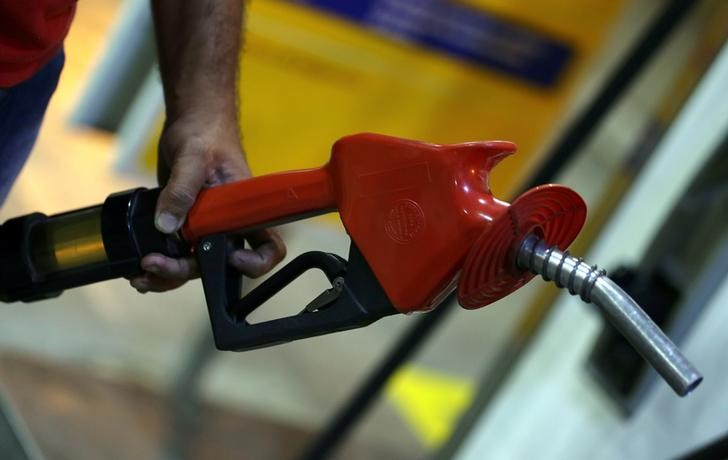By Stephanie Kelly
NEW YORK (Reuters) - The U.S. Agriculture Department will make available up to $100 million in grants to expand the infrastructure needed to sell more ethanol, biodiesel and other renewable fuels, the agency announced on Friday.
Last year the Trump administration, seeking to win over farmers, lifted restrictions on the sale of gasoline containing up to 15% corn-based ethanol, called E15 - opening the door to expanded investment.
"USDA is making grants available... to increase significantly the sale and use of higher blends of ethanol and biodiesel by expanding the infrastructure for renewable fuels derived from U.S. agricultural products," the department said in a press release.
Efforts to expand U.S. biofuels use have been welcomed by corn growers and biofuel producers, but have angered the oil industry, which views biofuels as a competition for petroleum-based fuels.
Both the oil and agriculture constituencies are important to President Donald Trump's re-election bid.
Biofuels associations cheered the announcement.
"We are grateful for USDA Secretary Sonny Perdue for this commitment to expanding infrastructure and access to higher blends of biofuels," said Growth Energy, a biofuels trade association. "Secretary Perdue's announcement today helps propel higher biofuel blends into the next decade."
Throughout his administration Trump has tried to please both the corn and oil lobbies in his approach to U.S. biofuel blending laws, at times angering both sides.
Most recently, the administration has had to consider its approach to waivers granted to oil refiners, exempting them from the blending requirements. Biofuel advocates want the number of waivers to be pared back, while the oil industry sees the waivers as a necessary tool to combat expensive obligations.
The U.S. Renewable Fuel Standard (RFS) requires oil refineries to blend billions of gallons of biofuels such as ethanol into the nation's fuel pool, or buy credits known as RINs from those that do. The U.S. Energy Information Administration can waive refiners' obligations if they prove compliance would cause them financial distress.
